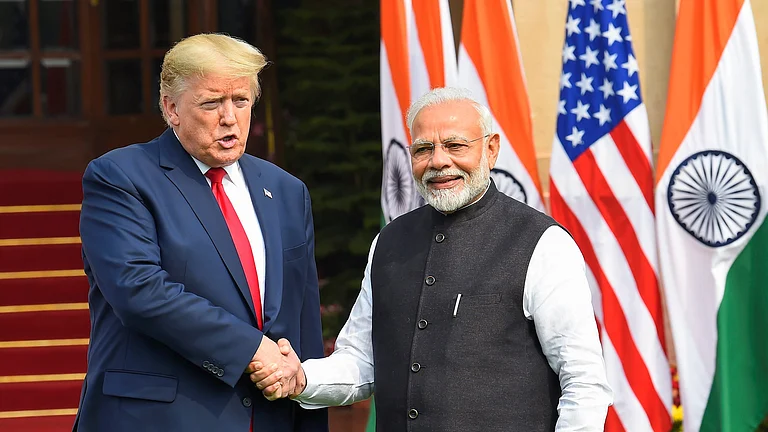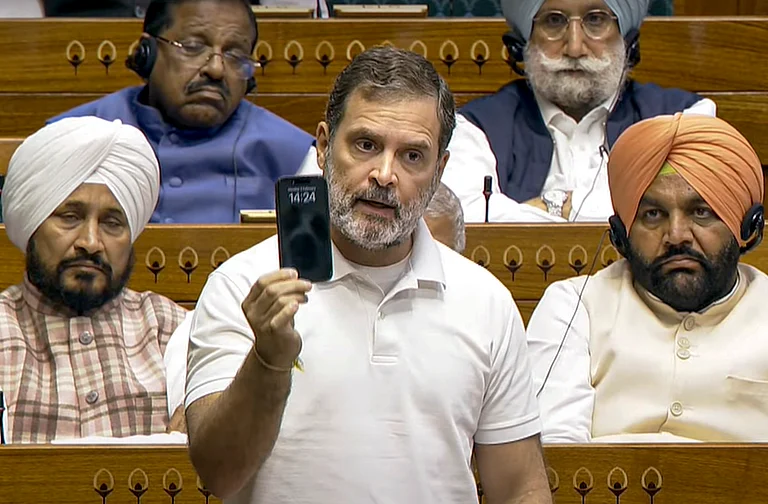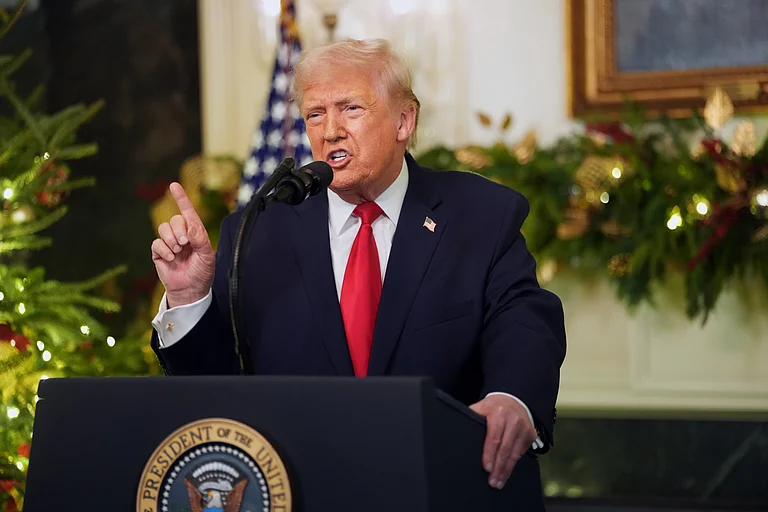In yet another sign that US President Joe Biden of the Democratic Party and the former President Donald Trump of the Republican Party are headed to rematch in the US presidential election later this year, the two of the swept the primaries and caucuses of their respective parties on Tuesday.
In the US presidential election system, the candidates have to first secure the nomination from their own party before facing the candidate of the other party in the final election in November. These intra-party elections take place in the form of primaries and caucuses.
Of the 15 states that went to intra-party elections on 'Super Tuesday', Biden won all the states and Trump won 14. Trump's only remaining rival in the race to the Republican nomination, Nikki Haley, won the state of Vermont. However, the massive lead that Trump has so far amassed has virtually made him the presumptive Republican nominee.
While Biden won the primaries comfortably, he again faced protest vote from Arab-Americans and the progressive wing of the Democratic Party over his position in the Israel's War on Gaza. There were also some —even if minor for now— warning signs for Trump despite a near-sweep he has so far pulled off.
Here we explain the results of 'Super Tuesday' primaries, what it means for the US presidential election, and what the polls say about a Biden-Trump rematch.
What's Super Tuesday, What Do Results Mean?
In the US presidential election cycle, there comes a Tuesday in February or March in which several states at once hold primaries or caucuses for their intra-party contests. This is a very important day in the US presidential election as it often clears the picture as to who is most likely to secure their party's nomination in the year's presidential election. Such a day is called the 'Super Tuesday'.
Each state carries a certain number of delegates that the candidates win as per their vote share. Then, at the end of the nomination cycle, a party convention is held in which these delegates cast votes and elect the party's nominee.
The Super Tuesday is also important as intra-party contests are for Senate and House of Representatives contests are also held along side the presidential nomination contest.
This time, the 'Super Tuesday' fell on March 5 and intra-party contests were held in 15 states. Of the 15 states, Biden won all the states in the Democratic Party's primaries and Trump won 14 in Republican Party's primaries. Nikki Haley, the only remaining rival of Trump in the race to the Republican nomination, won the state of Vermont.
While Haley denied Trump a clean-sweep of all the 15 states, he is still being seen as the Republican presumptive nominee because of his massive lead. The CNN noted that Trump has won 92 per cent of the delegates so far. The CNN noted, "Just before midnight, with many votes still being counted, CNN’s latest delegate estimate showed that Trump had picked up 617 delegates on Tuesday to Haley’s 23. Overall, Trump had 893 delegates — 92 per cent of those awarded so far and closing in on the 1,215 he’ll need to clinch the GOP nomination. Haley had just 66."
As for Biden, he is firmly set to secure his party's nomination, but there are warning signs for him. Just like Michigan where around 13 per cent of the voters cast 'uncommitted' votes in protest against his position on Israel's War on Gaza, around 19 per cent caste 'uncommitted' votes in Minnesota. He also faced issues in American Samoa, a territory which does not carry any weight in the eventual presidential election but holds symbolic primaries. There, he tied with Jason Palmer, a little-known businessman.
Challenges For Biden And Trump
Oddly enough, Trump and Biden face challenges from similar demographics in their respective parties.
In the Democratic Party, the younger and higher-educated voters from the progressive wing of the party are miffed with Biden over his position on Israel's War to Gaza. They have been leading 'uncommitted' campaigns against him and have held protests.
In the Republican Party, higher-educated and moderate voters are a key bloc of support for Nikky Haley, the only remaining challenger of Trump.
"A majority of Ms. Haley’s primary voters said they were voting against her opponent more than for her, a sign of anti-Trump motivation that could last until November. And even in defeat, she was leading among moderate voters by nearly two-to-one. Her problem was that moderates make up only 20 percent of the voters in a G.O.P. primary. But in a close general election, those voters may matter more. Overall, roughly one in four Republican primary voters in North Carolina said they would feel dissatisfied if Mr. Trump won the nomination," noted Shane Goldmacher and Adam Nagourney in an article for The New York Times.
While these segments have not yet mounted challenges to the extent that they hurt election prospects or flip primaries, these segments may harm the candidates in the final election. Some say that the moderate Republicans aligned with Haley along with Independents may shift to Biden in the eventual Biden versus Trump rematch and progressive voters may shift to third-party candidates in the similar scenario or don't vote at all in protest.
Some observers, however, say the challenge is much harder for Trump than Biden.
"Biden has more room to win over his intra-party detractors, the most numerous and vocal of whom are enraged by his handling of Israel’s war in Gaza. That indignation will not totally disappear with time, but it is likely to become less volatile. (And that’s before Trump’s commentary on the matter gets more scrutiny.) Trump, on the other hand, is not going to change who he is – the person and personality who, despite his delegate dominance, has repeatedly lost roughly 30 per cent to 40 per cent of the GOP vote," note Eric Bradner, Gregory Krieg, and Simone Pathe in an article for CNN.
Nikki Haley Expected To End Campaign
After the Super Tuesday's results, Trump's only remaining rival to the Republican nomination, Nikki Haley, is expected to announce an end to her campaign and pave the way for Trump's nomination and a rematch of the 2020 Biden versus Trump contest, according to reports.
Citing sources, CNN reported that while Haley will end her campaign, she will not endorse Trump for now.
"Instead, Haley will call on Trump to earn the support of voters who backed her. That plan appears to leave the room for her to endorse Trump ahead of the general election in November," reported CNN.
What Do Polls Say About Biden Vs Trump Contest?
For much of the US presidential election cycle so far, Trump has had a lead over Biden, according to polls results compiled by the data-driven and election news portal FiveThirtyEight.
In the latest polls in the past week, however, Biden and Trump have been more evenly matched.
In the Morning Consult poll ending on March 2, Biden led by a 1 per cent margin.
In the TIPP Insights poll ending on March 1, Biden and Trump were evenly matched.
In the YouGov-CBS News poll ending March 1, Trump led by a 4 per cent margin.


























